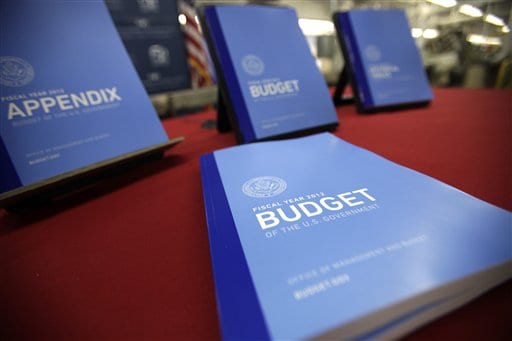As Budget Talks Continue, Sequestration Has Yet to Stall Economy
A month after sequestration kicked in, the alarms sounded by President Obama – “It will cost us jobs and slow down our economy,” he said Feb. 5 – have not gone off.
The $85 billion budget cuts that Washington lawmakers forced on themselves have unfurled quietly, with little noticeable impact on the areas Obama was certain would suffer.
“There is no reason that the jobs of thousands of Americans who work in national security or education or clean energy, not to mention the growth of the entire economy, should be put in jeopardy,” Obama said Feb. 5. “It’s not the right thing to do for the economy.”
The economic signs of the past month argue just the opposite.
Wall Street is on a record run, the housing and automobile industries — two critical components of economic recovery — are surging, and factory orders are up in nearly every category, most notably for durable goods.
Government Waste
But while the private economy is purring along, Washington’s politicians are back to business as usual, which means talking tough about budget reductions while simultaneously spending taxpayer money as frivolously as a 5-year-old.
One of their first “tough talk” suggestions was to limit employee travel. Apparently the word didn’t get to the Senate Finance Committee, which sent 16 staffers on a two-week trip to Vietnam, Australia and New Zealand. The staffers, representing Democrats and Republicans, were preparing for a debate on the free-trade agreement called the Trans-Pacific Partnership (TPP).
Everyone agrees that the TPP is a big deal, but the next debate is actually the 17th round of negotiations. What were the staffers doing the first 16 rounds? And why did they need two weeks to catch up?
Obama, meanwhile, announced he will send his 2014 budget to Congress April 10, or 65 days after the Feb. 4 deadline for submitting a budget. This the fourth time in five years in office that Obama has missed the budget deadline.
His staff cited the uncertainty created by the fiscal cliff crisis at the end of 2012 and the subsequent sequestration problem that solved itself March 1. They now have put together a plan that includes the $85 billion in cuts, but also has hoped-for increases in spending on education, clean-energy research, and improved roads and bridges.
Defense Spending?
Meanwhile, Defense Secretary Chuck Hagel made his first major policy speech Tuesday night. Hagel’s focus was on how his department would handle the $41 billion coming out of its budget this year.
“This effort will, by necessity, consider big choices that could lead to fundamental change and a further prioritization of the use of our resources,” Hagel told the audience at the National Defense University.
As if to explain himself, Hagel followed up with this equally confusing line: “Change that involves not just tweaking or chipping away at existing structures or practices but where necessary fashioning entirely new ones that are better suited to 21st century challenges and initiatives.”
And finally, there is Vice President Joe Biden, who not surprisingly seems completely out of the loop on the issue of budget cutting and keeping travel expenses low. Biden took a trip to Europe, and his hotel bill for a one-night stay in Paris was $585,000. The vice president went from there to London, where his bill for one night was $459,388.
Give him some credit. Taxpayers have to be happy anytime their politicians can save more than $100,000 on a night’s stay.
Sources:
- Runningen, R. (2013, March 28). Obama Will Snd Fiscal 2014 Budget to Congress April 10. Bloomberg. Retrieved from http://www.bloomberg.com/news/2013-03-28/obama-will-send-fiscal-2014-budget-to-congress-april-10.html
- Parnes, A. and Wasson, E. (2013, February 5). Obama demands sequester delay. The Hill.com. Retrieved from http://thehill.com/blogs/on-the-money/budget/281123-obama-to-request-delay-in-sequester-cuts#ixzz2PVMVDvJ5
- Biggest Rise in 5 Months For Orders At Factories. (2013, April 2). The New York Times. Retrieved from http://www.nytimes.com/2013/04/03/business/economy/factory-orders-climb.html?_r=0
- Dinan, S. (2013, February 4). Obama misses his 4th budget deadline. Washington Times. Retrieved from http://www.washingtontimes.com/blog/inside-politics/2013/feb/4/obama-misses-budget-deadline/
- Grenoble, R. (2013, March 25). Joe Biden’s Paris Hotel Cost $585,000 For One-Night Vice Presidential Stay. The Huffington Post. Retrieved from http://www.huffingtonpost.com/2013/03/25/joe-biden-paris-hotel-cost_n_2950062.html
- Vanden Brook, T. (2013, April 3). Hagel proposes fundamental Pentagon spending changes. USA Today. Retrieved from http://www.usatoday.com/story/news/politics/2013/04/03/hagel-proposes-improved-planning-spending-cuts/2049367/


















